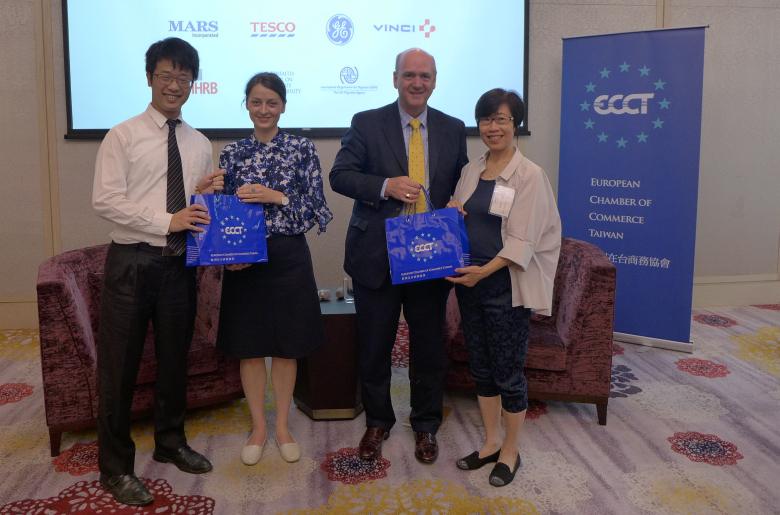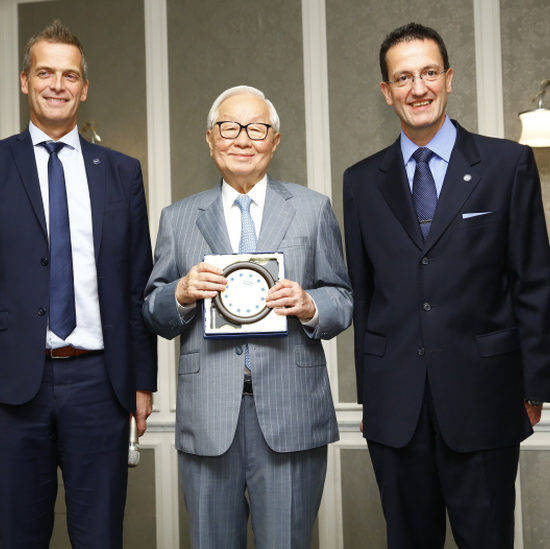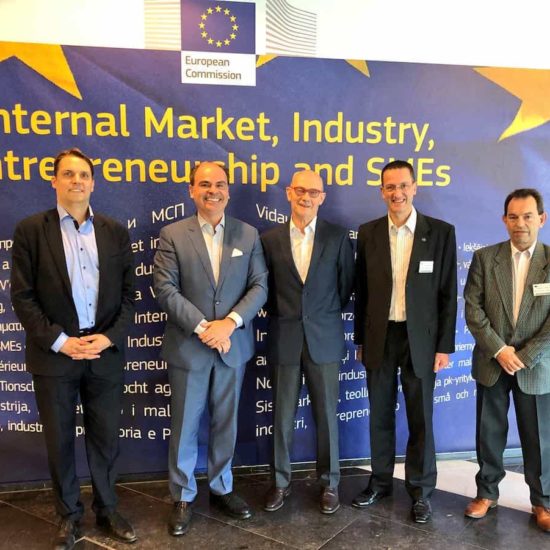Ethical recruitment of migrant workers

The ECCT's Human Resources and Corporate Social Responsibility committees jointly hosted a lunch on the topic "Ethical recruitment of migrant workers - challenges in securing sustainable labour supply chains in Taiwan" featuring guest speakers Ajda Cevc, Sustainability Development Leader from IKEA and Doug Nystrom, Director, Human Rights – Responsible Sourcing from Walmart. At the event the speakers gave an overview of the difficulties associated with hiring migrant workers in an ethical manner and some of the strategies their companies have adopted.
Both the speakers are part of teams in their companies responsible for drafting and implementing ethical practices regarding the hiring and treatment of employees. This extends to all workers in their supply chains. Given the fact that both companies have thousands of suppliers, scattered all over the world, which themselves have their own suppliers, it is a very difficult and complex task to ensure that all players in their supply chains are following ethical guidelines. The task is made even more difficult given varying legal requirements and recruitment practices and standards in the multiple countries in which their suppliers operate.
IKEA starts from the principle that no worker should have to pay for a job. However, based on the company's extensive investigation of recruitment practices, it has found that it is still common practice for migrant workers to pay large sums to recruitment agents or employment brokers, directly in fees, through deductions from wages and through undeclared under-the-table payments. While, on the surface, it may appear that these workers are earning the same wages as their fellow workers, the invisible debt effectively makes them bonded labourers.
IKEA's code of conduct specifies that all recruitment costs must be borne by the employer. However, what IKEA has found is that even if their suppliers wish to follow the code of conduct, it is not so simple to do so in practice. Most suppliers tend to deal only with recruitment agents. However, after delving into the recruitment process, IKEA found that there are several layers of sometimes opaque processes and intermediaries making money that is ultimately paid by the workers. Fees include administrative, passport, travel and compulsory training fees. However, the largest portion of the costs comes in the form of fees by local agents to agencies in the source countries, which are ultimately recouped from the workers.
According to IKEA's mapping of costs to workers from four South East Asian countries they found that, in cases where the employer was not involved in covering the costs in the recruitment process, migrant workers coming to Taiwan could be charged up to several thousand US dollars. Given that the minimum wage in Taiwan is around US$700-800 per month, this implies it could sometimes take these workers years to pay off their debts.
Moreover, agents often confiscate the passports of workers and retain a monetary deposit, only refundable at the end of the worker's contract, in order to keep the workers from absconding. An added burden is that workers often have no access to ordinary credit and end up borrowing from loan sharks at high interest rates, thereby further extending the amount and duration of their debt bondage.
A number of strategies are being adopted to address the problem. Some companies have resorted to doing their own recruitment in order to by-pass the intermediaries. Some new, ethical recruitment agencies, which only charge employers, have started operating (although there are still not enough of them to meet demand).
However, one of the major impediments to change is the mind-set of migrant workers themselves. The notion that migrant workers have to pay for a good job is deeply ingrained. Many workers are suspicious if no fees are charged. It will therefore take concerted efforts to educate them as well as a track record of successful cases before the balance can be tipped in favour of employer-funded recruitment.
Change can be sped up with better legislation and enforcement. The good news is that awareness of modern day slavery and debt bondage is increasing and more and more countries are implementing stricter laws in this regard. When combined with the efforts of hundreds of companies like IKEA and Walmart to enforce standards all across the supply chain, the rights of migrant workers can be protected.


